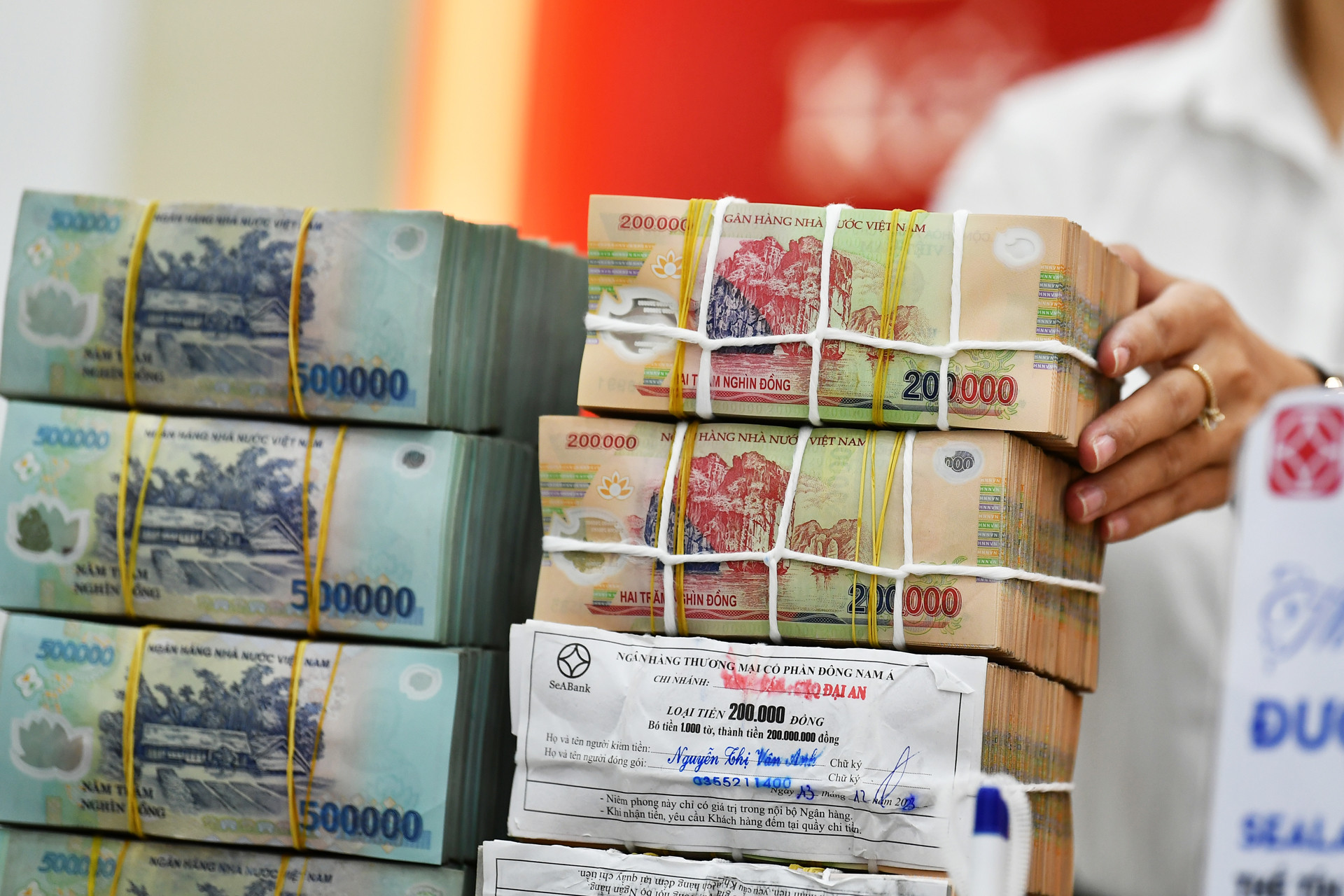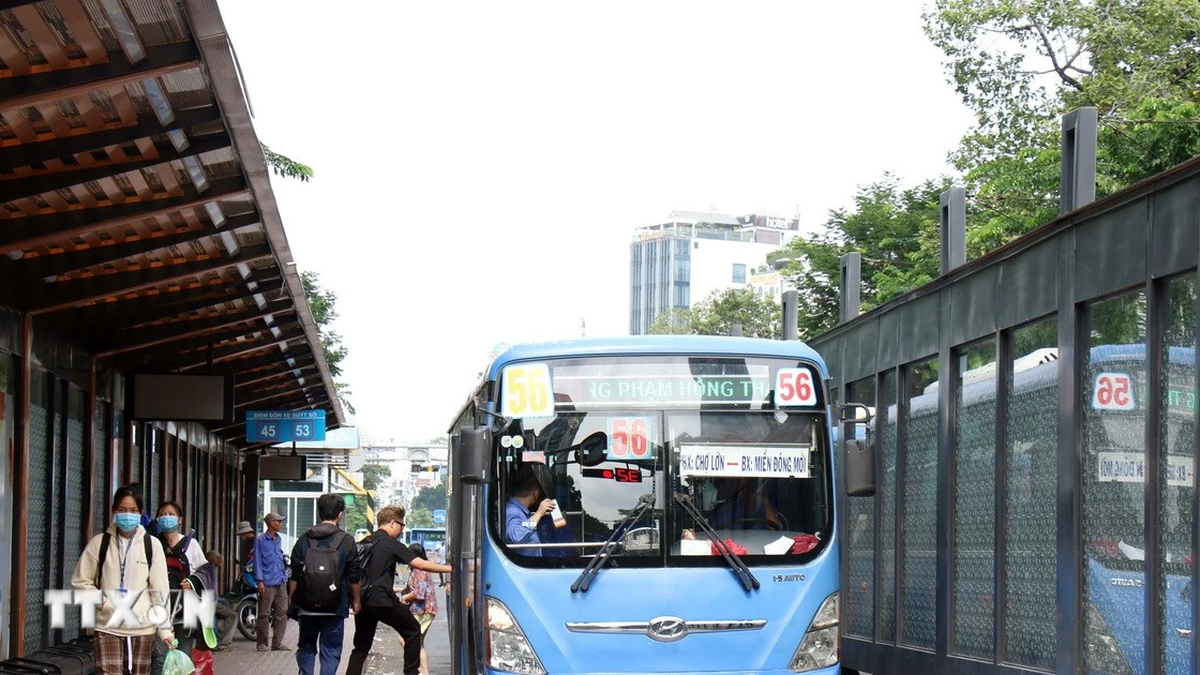Data compiled from the consolidated audited financial statements of banks shows that in 2023, the Top 10 private banks with the largest budget contributions contributed a total of more than VND 36,800 billion to the state budget, an increase of more than VND 10,700 billion compared to 2022.
The top 10 private banks in terms of state budget contributions include: Vietnam Technological and Commercial Joint Stock Bank (Techcombank), Vietnam Prosperity Joint Stock Commercial Bank (VPBank), Asia Commercial Joint Stock Bank (ACB), Vietnam International Commercial Joint Stock Bank (VIB), Saigon Hanoi Commercial Joint Stock Bank ( SHB ), Ho Chi Minh City Development Joint Stock Commercial Bank (HDBank), Tien Phong Commercial Joint Stock Bank (TPBank), Saigon Thuong Tin Commercial Joint Stock Bank (Sacombank), Vietnam Maritime Commercial Joint Stock Bank (MSB), Loc Phat Vietnam Commercial Joint Stock Bank (LPBank). All of these banks have budget contributions of over VND 1,000 billion in 2023.
Notably, many banks in the Top 10 have doubled their budget contributions compared to the previous year. This shows that banks have always maintained stability and growth, promoting the development of the entire industry in particular and the economy in general.

2023 is a year with many difficulties and challenges for the Vietnamese economy in general and the banking system in particular. Banks have faced a liquidity crisis and a corporate bond crisis that lasted from the end of 2022 to the beginning of 2023.
This led to slowing economic growth, reduced demand for credit and weakened the health of many businesses, leading to difficulties for banks.
However, banks have also shared benefits and risks with the business community by lowering lending interest rates and restructuring debts for customers according to Circular 02.
In 2024, at the conference to review the first 6 months of the year and deploy tasks for the last 6 months of the year for the banking sector, the leaders of the State Bank of Vietnam (SBV) assessed that, basically, credit institutions (CIs) seriously implemented the tasks assigned by the Government and the SBV in the SBV's directives and action programs... Thereby, promptly removing difficulties, supporting businesses to recover soon, and promoting economic growth.
Governor of the State Bank of Vietnam Nguyen Thi Hong requested credit institutions to implement solutions to support people and businesses in a substantial, public, and transparent manner.
In addition, credit institutions focus on improving governance, management, and early and remote forecasting of risks to ensure system safety. Risk management activities of credit institutions must be comprehensive and comprehensive in all aspects of operations. For credit activities in particular, credit institutions must regularly review and compare to control credit quality, ensure safe and effective credit, and coordinate with local departments, branches and sectors to grasp information promptly. Along with that, the role of the internal control and audit committee must be enhanced.
The Governor also requested to continue to resolutely and effectively implement the project "Restructuring the system of credit institutions associated with bad debt settlement in the period of 2021-2025" to contribute to the development of a system of credit institutions operating healthily, with quality, efficiency, openness, transparency in accordance with the provisions of law and approaching and meeting international standards and practices; promote bad debt settlement, improve credit quality, prevent and minimize new bad debts. Continue to effectively implement the Digital Transformation Plan of the banking sector until 2025, with a vision to 2030; the project to develop non-cash payments in Vietnam for the period of 2021-2025; the strategy for information technology development in the banking sector until 2025, with a vision to 2030, etc.
Source: https://vietnamnet.vn/10-ngan-hang-tu-nhan-nop-ngan-sach-tren-ngan-ty-lon-nhat-viet-nam-2306763.html






















































![[Maritime News] More than 80% of global container shipping capacity is in the hands of MSC and major shipping alliances](https://vphoto.vietnam.vn/thumb/402x226/vietnam/resource/IMAGE/2025/7/16/6b4d586c984b4cbf8c5680352b9eaeb0)











































Comment (0)